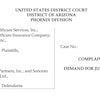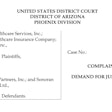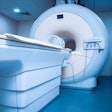A healthcare system in Alabama and a physician group practice have agreed to pay $24.5 million to settle claims made by the U.S. government that they violated federal antikickback laws.
Infirmary Health System (IHS) of Mobile, two affiliated clinics, and Diagnostic Physicians Group (DPG) agreed to pay the U.S. government to settle claims that they violated the False Claims Act by paying or receiving kickbacks for referring Medicare patients for imaging exams.
The U.S. attorney's office charged that Infirmary Health in 1988 acquired one of the clinics from DPG, IMC-Diagnostic and Medical Clinic, and agreed to pay DPG a share of revenue generated by the clinic, including from medical imaging and lab tests. When Infirmary Health acquired another clinic in 2008, IMC-Northside Clinic, its physicians joined DPG and entered into a similar agreement.
The U.S. government charged that these agreements were generating illegal kickbacks and were prohibited under the Stark anti-self-referral law banning physicians from referring patients to facilities in which they have a financial interest. Published reports on the investigation claim that Infirmary Health and DPG generated $522 million in false claims for exams such as nuclear imaging tests.
The U.S. government's involvement in the case began after a former DPG physician, Dr. Christian Heesch, filed a lawsuit using the whistleblower provisions of the False Claims Act, and the U.S. government subsequently intervened to take over the case. Heesch will receive $4.4 million as his share of the settlement.
In a published report, Infirmary Health executives did not admit to any fraud; instead, they attributed the case to the "very complex and extremely technical Stark law," and a disagreement between the health system and the government over how to interpret the law.



















